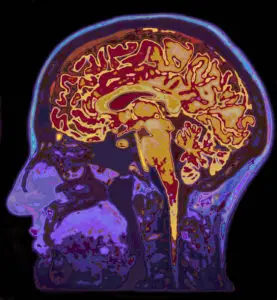
What can go wrong when a lawyer goes to the hospital with a headache? Apparently, a lot!
An Illinois judge approved a $20 million settlement in a medical malpractice case whose trial began in Illinois on October 28, 2016. The plaintiff, a former attorney, who suffered brain damage after a visit to Northwestern’s Central DuPage Hospital, filed the lawsuit along with his wife, alleging that the hospital was medically negligent in its failure to properly treat him when he visited the hospital in 2012.
The plaintiff, then 50 years old, visited the emergency room of Central DuPage Hospital on a late night in September of 2012, complaining of a headache, neck pain, vomiting and disorientation. The hospital, after diagnosing him with severe dehydration, re-hydrated him in the emergency room and sent him home with pain medication.
Two days later, while at work, the plaintiff collapsed at his desk. His heart stopped twice before the ambulance transporting him arrived at Rush University Medical Center. Physicians at Rush determined that he had suffered a subarachnoid hemorrhage – bleeding in the space between the brain and the tissue that covers it. According to the medical malpractice lawsuit, the stroke left the plaintiff with brain damage so severe, that he lost his short-term memory, and can no longer remember any new information for more than about half an hour. After the stroke, the plaintiff spent five months in the hospital, followed by almost two years in rehabilitation. He had to relearn how to speak, swallow and walk.
In the lawsuit, the patient alleged that the emergency room staff did not exercise the proper standard of care in their treatment of the plaintiff. According to the plaintiff’s lawyers, Kevin G. Burke and Jay Williams, if the hospital had conducted a CT scan and lumbar puncture on the patient, the problem could have been revealed, and the doctors could have performed a procedure to stop a recurrence of the bleeding in the patient’s brain, preventing the damage that he ended up suffering.
The parties did not engage in any settlement negotiations before trial, and reached the settlement after discussing the case with the judge. According to Burke, the trial had reached the point where the defense was to present their experts, but he ”thought it was clear that the hospital felt that “they didn’t have any good days ahead of them.””
There are several types of expert witness that can be useful in a medical malpractice lawsuit involving a failure to diagnose a stroke.
- Neurologists can consult about the cause of the stroke or any limitations or deficits a person has suffered after the stroke.
- Emergency medicine experts can shed light on the proper standard of care required in an emergency room setting for this type of condition.
- Primary Care Physicians can serve as experts in cases where the defendant is a primary care doctor who failed to prevent a stroke by prescribing medications to reduce blood pressure or lower cholesterol.
- Other doctors like neurosurgeons, endovascular surgeons, interventional neuroradiologists or physical medicine and rehabilitation doctors may also be consulted.

